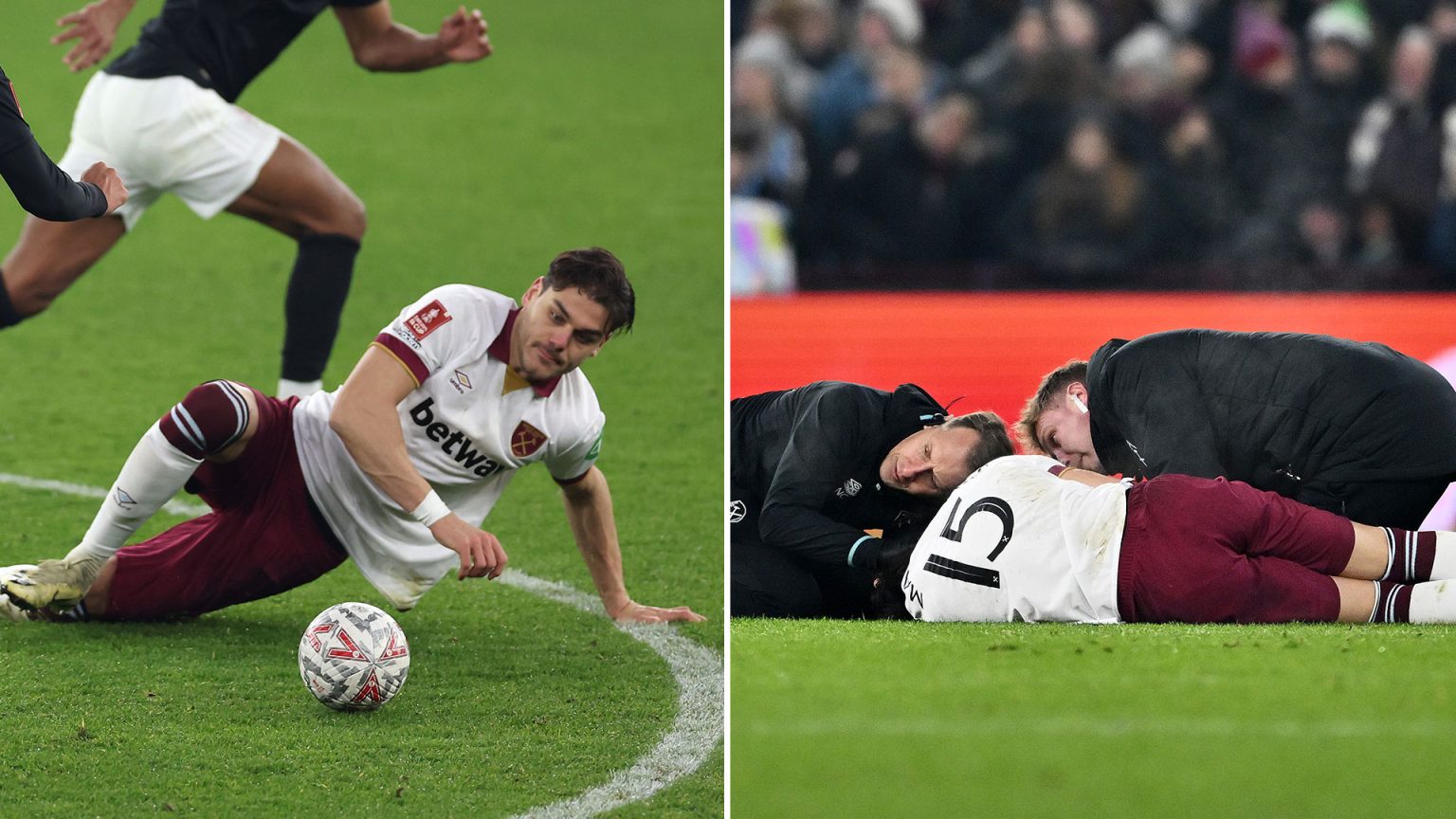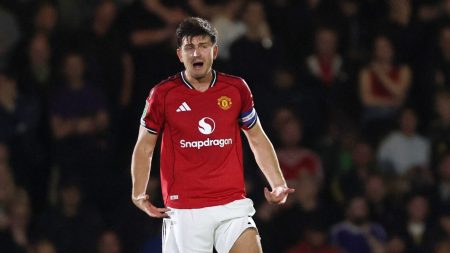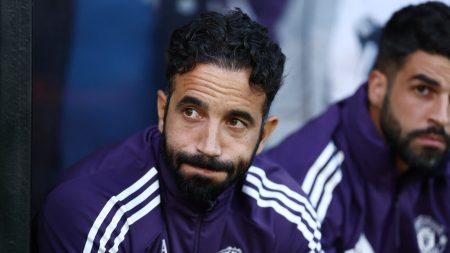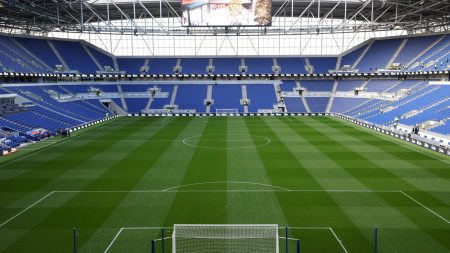Konstantinos Mavropanos’s ill-fated attempt at a headed tackle during West Ham’s FA Cup clash against Aston Villa epitomized the challenging debut for new Hammers manager, Graham Potter. The Greek defender’s commitment to the cause, albeit unconventional, resulted in a painful collision with Aston Villa’s Morgan Rogers, forcing him off the pitch with an injury. This incident, reminiscent of former Manchester United player Phil Jones’s wholehearted, and sometimes unorthodox, defensive style, underscored the physicality of the game and the risks players often take. Mavropanos’s injury added to the woes of a West Ham side already reeling from the loss of two other players, Crysensio Summerville and Niclas Fullkrug, further complicating Potter’s first match in charge. The unfortunate series of events ultimately contributed to West Ham’s 2-1 defeat and their elimination from the FA Cup.
Mavropanos’s eagerness to thwart Rogers’s attack led him to launch himself at the ball, but his head connected with Rogers’s knee, leaving him writhing in agony. The impact of the collision was evident, necessitating his substitution and the introduction of 18-year-old Luis Guilherme. This unfortunate incident became a focal point of the match, drawing comparisons to Phil Jones, known for his committed, if occasionally reckless, defensive displays. The incident sparked social media commentary, with fans likening Mavropanos’s unconventional tackle to Jones’s style, highlighting the fine line between dedication and potential injury risk in professional football. The incident unfortunately overshadowed other aspects of the game, shifting the focus to the physical toll the sport can take on players.
The injury to Mavropanos compounded the problems faced by Graham Potter in his managerial debut for West Ham. The loss of three key players significantly hampered the team’s ability to execute their game plan, particularly in attack. Potter acknowledged the impact of these injuries, stating that losing Summerville and Fullkrug had a direct influence on their attacking prowess. The enforced substitutions disrupted the team’s rhythm and forced them to adjust their strategy mid-game, placing additional pressure on the remaining players. This disruption further undermined their efforts to counter Aston Villa’s growing dominance in the match.
Potter’s explanation highlighted the tactical challenges he faced as a result of the injuries. The loss of attacking options limited West Ham’s ability to create chances and sustain pressure on Aston Villa. Forced to adopt a more defensive posture, they struggled to relieve the pressure exerted by the opposition. This defensive shift, though necessary given the circumstances, ultimately contributed to their defeat, as they were unable to generate enough attacking momentum to overturn the deficit. The injuries, therefore, played a significant role in shaping the outcome of the match, underlining the importance of squad depth and the disruptive impact of unexpected absences.
The match served as a harsh introduction for Potter to the realities of managing in a demanding league. Facing an Aston Villa side eager to progress in the FA Cup, West Ham struggled to gain a foothold in the game, despite taking an early lead. The injuries further complicated matters, forcing Potter to make unplanned substitutions and disrupting his tactical approach. The match ultimately showcased the unpredictable nature of football and the challenges managers face when dealing with unexpected setbacks. Despite the disappointing result, Potter’s post-match analysis demonstrated his understanding of the game’s dynamics and his ability to identify the factors that contributed to the defeat.
The 2-1 loss to Aston Villa marked a disappointing start to Potter’s tenure at West Ham. The injuries to key players, including the unfortunate incident involving Mavropanos, undoubtedly played a significant role in the defeat. While the result was not what Potter had hoped for, his post-match comments revealed a clear understanding of the challenges he faced and his ability to analyze the team’s performance. The match served as a reminder of the importance of squad depth and the need to adapt to unforeseen circumstances. Moving forward, Potter will have to address the injury concerns and rebuild the team’s confidence as they look to improve their performance in the upcoming matches. The FA Cup exit, while disappointing, provides an opportunity for reflection and adjustment as the team navigates the remainder of the season.











